

TODAY'S LIST OF THINGS TO DO TO AVERT THE APOCALYPSE AND OTHER NOTES TO SELF.
What’s your problem?
“Why should I care about a few bits of plastic ?” said several billion people, “how does it help my life to be changing what I do”. ”Oh, can’t we just throw it away ?”
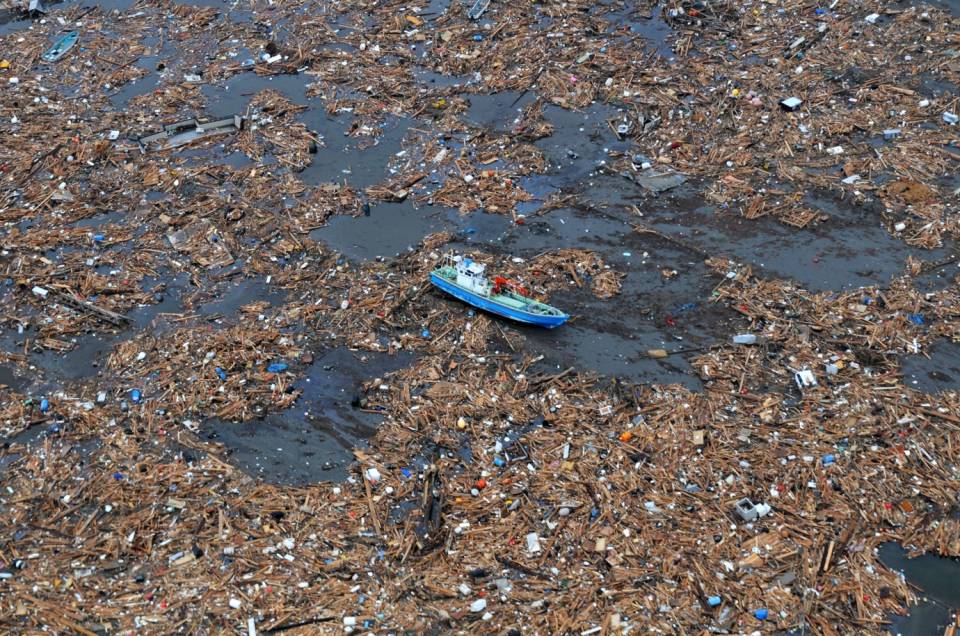
Where is this place called ‘away’, where all the rubbish disappears to? In fact, it turns out, that ‘away’ is actually ‘here’.
Plastic waste is here, it’s there, in fact, it's everywhere. It’s even in places where there is no one anywhere, it’s in our blood too (surprise!).
How can that be (said no one)? Because when we threw it away, it was supposed to disappear and no longer be our problem? That’s what ‘away’ is supposed to mean.
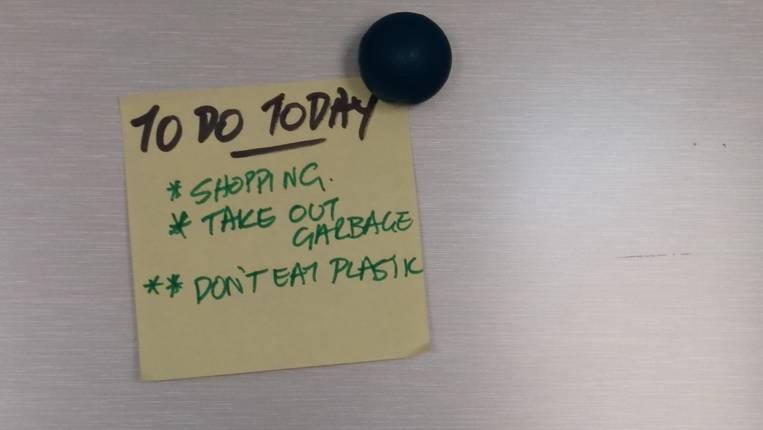
Well, it turns out that it doesn’t mean that, it actually means ‘here’, it’s still our problem and it’s not disappearing instead it’s a life-threatening problem which is growing by the minute.
Already, pollution kills more people globally than all wars, diseases and social related deaths (murders, accidents, etc.) A big part of that threat is coming from microplastics which are turning up everywhere, in our food, drinking water (including bottled water) and can now be found in our blood. Accompanying these microparticles is all the highly toxic chemicals used to create the plastic, some of which are called ‘forever chemicals’ because they don’t degrade with time (including endocrinal disruptors like PFAS).
Basically, forget COVID, the biggest threat to our lives is now in what we eat and drink, and we put it there.
It seems that Plastic will eventually kill us all long before anything else if we don’t change.
The future holds our salvation.
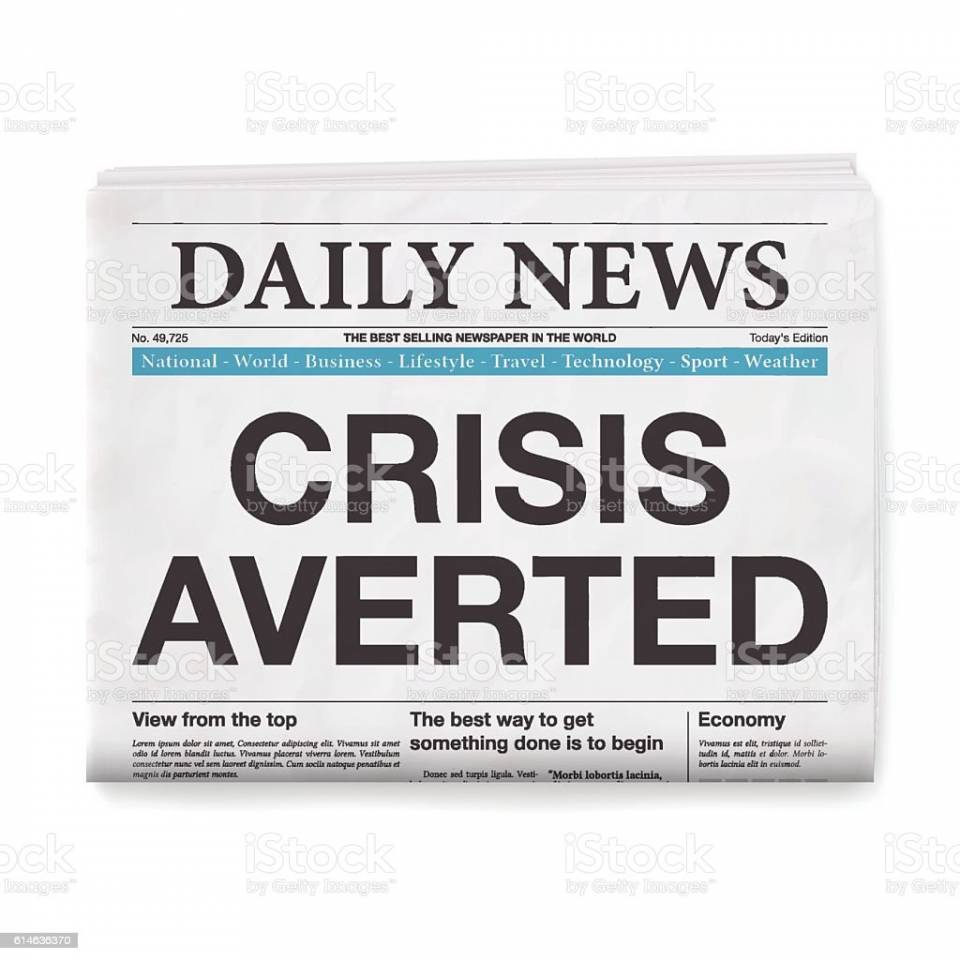
Amongst the news headlines, you will never see at any time in the future: “WIZARD WAVES MAGIC WAND AND PLASTIC WASTE CRISIS AVERTED AT LAST”.
Equally absurd, there will be nothing like “RESEARCHERS DECLARE THAT ECONOMY IS NOW CIRCULAR ENDING PLASTIC WASTE EMERGENCY”. Both are patently ridiculous and examples of fantastical thinking, sprouting philosophies dreamt of by the current apologists for the plastic industry.
These sorts of messaging statements are just spin, lies, or just plain wrong, written by people who don’t care if you live or die so long as they can make more money by ‘selling more plastic’. They live high, poisoning society and laugh as their riches grow, whilst the evidence grows for the harm they are causing. Humanity’s mortal enemy now has a face – it’s big plastic and their apologists.
‘Oh, Come on, hold your horses’, they will say, ‘big plastic is just making life easier and giving us consumers what we want, its people who are doing the littering who are at fault’. Well yes of course that is right, just like any shooting, ‘it’s the murderer who pulled the trigger who is guilty one’, but it’s also the shop that sold the gun and the manufacturers of the gun who made it possible - also guilty. So, let’s be real, everyone is at fault on the topic of plastic waste. We are all guilty and we must all admit it before we can solve it.
Governments around the world treat the topic with various amounts of concern, ranging from ‘changing the subject as quickly as possible’ to ‘paying lip service and voicing concern’ to outright lying, that the plastic waste crisis is not a ‘thing’ so we need not worry yet, ‘don’t get cross it’s going to be all right’. No, it’s not all right, and there are some (too few) who are very cross and rightly so, mostly at the people we elect to protect us who haven’t a notion that good governance should be in their job description and not just a slogan to get re-elected.
A lot for some but not much for others
Small island countries like Maldives, Seychelles, Canaries, Bahamas, and even Indonesia have now listed the plastic crisis as the highest priority in their struggle to exist. Big countries throughout Europe and North America treat the ‘situation’ as ‘of concern’ but not by any means an existential crisis and they should because it is. Reproduction rates are falling, premature deaths are rising and microplastic contamination is a significant part of that, these effects are not confined to small or underdeveloped countries.
Without some sort of urgency and recognition of the deep and profound harm plastic waste is doing to our society and moreover our planet home, ‘not much’ is probably the best description of our progress in the last 5 decades of trying - probably the next 5 will be no different. The reason is that the best estimates of the cost of halting the advance of plastic pollution including microplastic is exceeding €13 trillion, or put another way, the entire GDP of Europe, and that is just to stop the situation from getting worse but not eliminating the problem. It’s a lot and no one will spend it unless it seems that we must do it to stay alive.
Nice words from the mouths of politicians, academics, and corporations, to pacify us while the march of plastic waste floats on by, hundreds of millions of tonnes every single year and growing.
What needs to happen is a practical and impactful change in the ways things are done. This means that the sources of this plastic pollution must be identified, illuminated, and halted, or at least slowed to a manageable pace.
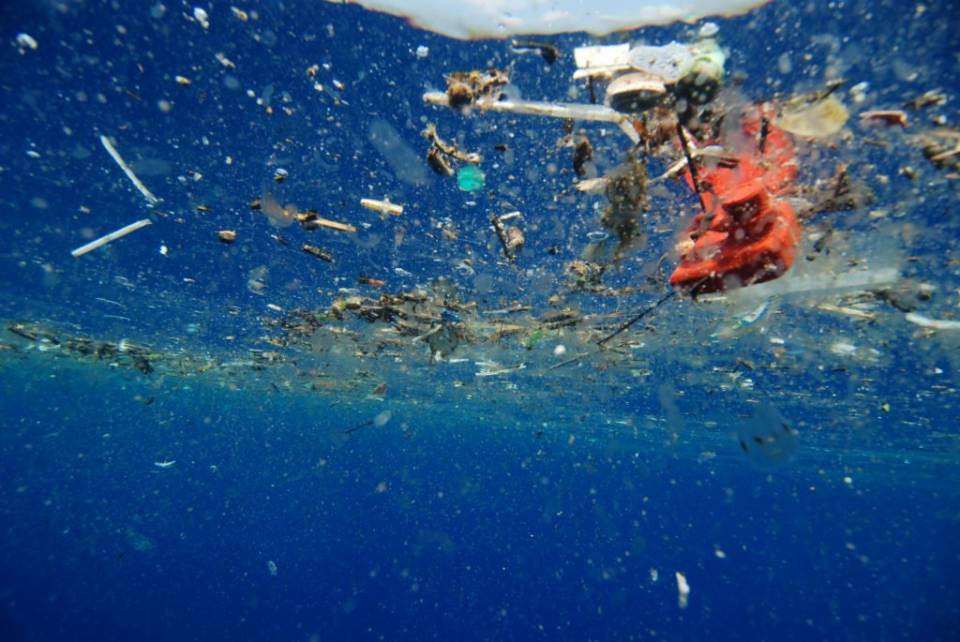 It sounds scary because it is and if raising the levels of fear is the only way to get recognition of the problem and build the momentum for urgent and profound change then so be it. Let’s look at what there is to be fearful about.
It sounds scary because it is and if raising the levels of fear is the only way to get recognition of the problem and build the momentum for urgent and profound change then so be it. Let’s look at what there is to be fearful about.
Microplastics from our discarded packaging are killing us in increasing numbers - get used to hearing it and think about what it means.
Fantastic plastic is forever
Plastic is a miraculous material. It’s cheap to produce and so we make lots of it. It comes in an endless list of forms which is useful for a growing number of purposes, from packaging to construction, medical applications to transport, and on and on. Literally, every aspect of our daily lives would be fundamentally changed for the worse without it. So, no one is in any doubt that it’s not going away no matter what anyone says, or writes, or legislates for that matter. It’s becoming more and more foundational to our existence and it turns out, our extinction.
To deal with these consequences, Packages must be made simpler, less complex, and may be less performant - this could be the cost of our transformation. The answer to every situation cannot be ‘there must be a plastic just right from that packaging solution’, as there starts another addition to the problem of the waste it creates either in production, sale or its ‘end of life’. STOP and THINK, is there another way to do it.
‘Is there another way to develop this product so that we don’t use plastic, or at least so that we use less of it?’ A good question that no one is asking, but they have to start with it or we will continue to suffer and remain in peril.
Who’s on first?
Producers rely on product designers; product designers are guided by retailers; and retailers are responsive to consumers when deciding what is produced, how it is produced, and what the package does in the end. Designers, producers, retailers and consumers; these are the parties who are directly responsible for this problem, and these are also the only people who can solve it.
As a sidebar; when Covid struck early in 2020 we were all told to put on masks and keep our distance from each other and we did it even though it felt uncomfortable and anti-social. In early 2021 we were all told to get the first of many vaccinations and we all did that too mostly because the consequences could be dire on our health or at worst fatal if we didn’t. This recent personal history proves that people everywhere can and will do what is best for them if they are told what to do and why it is necessary, and more importantly, what will happen if we don’t do it. So, let’s try that again.
Now, everyone everywhere must be told and shown if necessary, that plastic waste is equally as devastating if not more so than this recent pandemic. The reason that the plastic waste crisis is much worse is because there is no vaccine to protect against the consequences of polluting our planet, our food supply, our water supply, our bodies and those of our children. There is no magic science to come to the rescue, no momentary discomfort of a jab in the arm. This problem is unlike any other we face in that it invades every part of our lives and will keep doing so into the foreseeable future and no one can escape from its effects, even rich people.
We told you so, no wait, actually we didn’t
For decades, producers have been hiding their culpability for the mess they created for profit, behind the ruse that we shouldn’t worry because ‘recycling’ will deal with all of the waste. They knew from the very beginning that it could never be true, and they repeated this lie anyway, and we mostly believed them. So we tried our best to collect; and to sort; and clean and separate; and reprocess; and reuse. We’ve found out now after decades of trying that it's useless - the mountains of waste have become exponentially mountainous.
The facts are that there is no possibility to deal with all but a small percentage of the hundreds of millions of tonnes of material produced. There is no magic process devised anywhere around the world that has so far proven capable of dealing with the volume. The only hope is to reduce what we produce and to try to get on top of all we’ve made so far.
The future is bleak, our planet is becoming increasingly polluted and we have created it that way. Consumers are at the top of the tree and should now listen and learn if we are to live in a world that is not sullied by our own filth – mostly contaminated plastic waste including microplastics numbering in the trillions of pieces. The message is simple, clear, and urgent. Look for ways to use less plastic, or at least make choices that prefer plastic products that can be reused again and again, not only once.
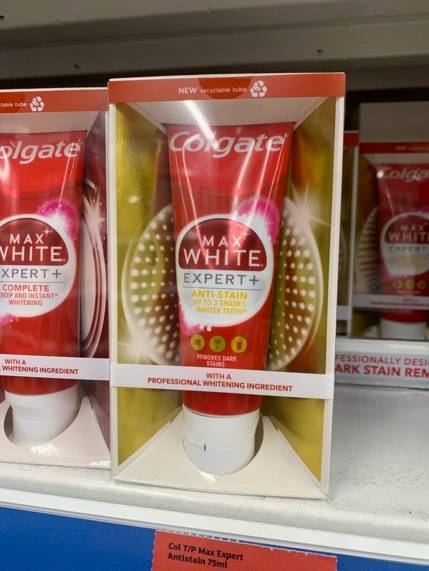 There has got to be an end to the sophisticated ‘single-use package’ in favour of the ‘take-home package’, or at least that the material in the package is easy to reprocess. That means, a simple construction using only one type of plastic, no printing, no glue, and when it is returned to be reprocessed, no contamination. These simple steps will vastly change the economics of reprocessing and consequently the volume which can be reprocessed and reused in some way.
There has got to be an end to the sophisticated ‘single-use package’ in favour of the ‘take-home package’, or at least that the material in the package is easy to reprocess. That means, a simple construction using only one type of plastic, no printing, no glue, and when it is returned to be reprocessed, no contamination. These simple steps will vastly change the economics of reprocessing and consequently the volume which can be reprocessed and reused in some way.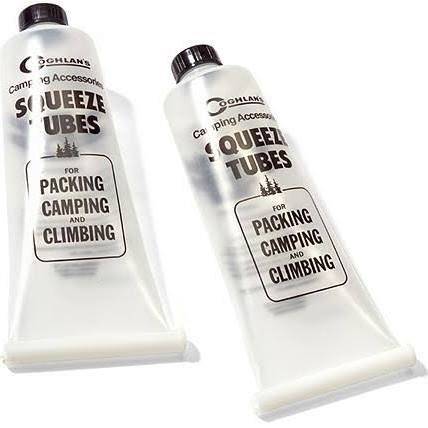
These are all easy to say and very admirable assertions, but who is going to listen and act, and why?
As consumers, we are bombarded with choices of luxury, high performance, Maxi volume, less salt, more vitamins, volume economy pack, and on and on. These devices are what retailing in the food and non-food sector is all about. It’s a competition for ‘shelf centimeters’, the more attractive the more space they occupy, the more they sell. So packages get brighter, bigger, more luxurious, and nicer to touch, and so the whole value chain creates the problem: that none of it can be reprocessed as it costs more than the material is worth.
You go first like we used to do
Products are what we want to buy, not the packages and so when we go shopping only products are what we should see. The package should be a functional addition to transport our product home so that it arrives in good condition. This could be as simple as possible to be a ‘take home’ help and not a sophisticated bombproof, oxygen-proof, sign post, movie scripted, advertisement for the product – this can be done in other ways, virtually or at least electronically.
Supermarkets have for decades dictated what producers make by what they’ll put on their shelves and producers have obliged. Packaging designs have become overdone, going above and beyond so that we consumers buy more and more, not thinking about the waste.
Producers must own the damage they have done and change their operations to stop the harm. Going further, they must invest in the infrastructure to collect and reprocess the packaging they have created, which is slowly killing all living creatures. Nothing else is meaningful and nothing less must be acceptable.
‘Greed is Good’ according to Gordon Gecko and it will save us
Consumers can hold retailers and producers accountable for their spending choices by not choosing products with bad packaging and choosing instead products with ‘simple is better’ packaging. If consumers don’t buy it; then retailers will not stock it, and producers will not make it. Seems so simple doesn’t it, but that is it, the only sure way to start to reduce the hundreds of millions of tonnes of plastic waste flooding into our homes and into our bodies is, don’t buy it.
As always, greed will rule the day. Retailers only want to serve their customers and sell ever more products, that is their nature. How that is done isn’t really the critical question but moreover ‘anything that works’ is more like their mantra. So if consumers show that they want their food offered with no plastic packaging but in bulk then retailers will oblige to maintain their custom. ‘Greed is good’ and greed could save the day – but consumers must all agree.
Recent legislation mandates that in Europe, fully 25% of all isle content must be a bulk delivery model by 2025. Here is an example of significant steps taken by legislation to begin to solve this situation. Politicians and bureaucrats are not generally regarded as having a steely determination to confront compelling social problems head-on. However, the recent COVID crisis and the initiative above show us that it is possible for legislators to grow a spine and act in our best interest despite opposition protests and howls from civil libertarians and anti-vaxers.
Legislators must remove the choice of packaging solutions from our shelves because we consumers cannot resist the convenience of the single portion package- it’s got to go. Looking at cigarette packages it is immediately obvious that such legislation is possible if the consequences are accepted as severe. The cost of not doing this is just too high and there can be no going back. We consumers will comply because we always do if it is clearly explained that it's necessary.
What does it all mean, tell us what we must do now
Even if ALL supermarkets everywhere offered significant amounts of their products in bulk and the packaging was altered to ‘take home’ only type, there will not be a marked decline in the total tonnage of plastic already produced – we’ve already gone too far. It will however, slow the increase and that should be a start to the process of finding more impactful and long-lasting solutions. We have to try.
To repeat the main points of this edition to be absolutely clear:
- Plastic is an irresistibly useful material and is here to stay, so there is no point bleating to ‘eliminate’ its use as that will never happen.
- Everyone is to blame for the problem and so everyone must admit it before any solutions can be developed, otherwise, no one will accept the need for change.
- Change must come across the whole system of distribution and there can be no quarter given to those who refuse to make the effort.
- The only force powerful enough to make the change happen in any sort of acceptable time frame is consumers through their spending power, and this is the starting point.
- Consumers should accept that single-portion packaging is their enemy and any means to avoid it is worthwhile and move to use exclusively the bulk supply system.
- Legislators must toughen their requirements to transition to the bulk distribution of products and go further by investing only in R&D which supports such systemic re-alignments.
- Producers must come to realize finally that they are the source of the problem and seek to make amends by investing in bulk systems on a GLOBAL scale. Producers must pay for the infrastructure to clean up the mess they have caused.
Only if, these are real prescriptions for the future will we manage to slow the rate of increase of plastic waste and avert the current crisis whose effects are so dire we are still not able to define them completely. What is clear is that this crisis is equal to, if not many times worse than the COVID crisis we faced recently. We’ve proved to ourselves that everyone will pitch in and participate but only it seems if we are convinced that there is a crisis and that we will be better off if we comply.
The only question left now is: Consumers, legislators, producers, and retailers, do we accept or even believe that there is a crisis?
If the answer is NO, then we’ll just have to wait until the consequences are so overwhelming and dire that our lives are threatened directly and visibly, and that will surely happen. Why it should have to get to that point with the evidence in plain view is our very modern dilemma. It will be a time that is most likely too late to act to avert catastrophe, but it’s often the poem of our age.
If the answer is YES then, for things to do today, talk tough on plastic waste, see microplastics as your own nightmare, and change our ways for the better and forever.
The next Edition of WIZARDWORDS 6.0 will be a special looking at Microplastics and the effects they have on our health and the world we live in.
Posted on 2022-06-22 09:59








Comments